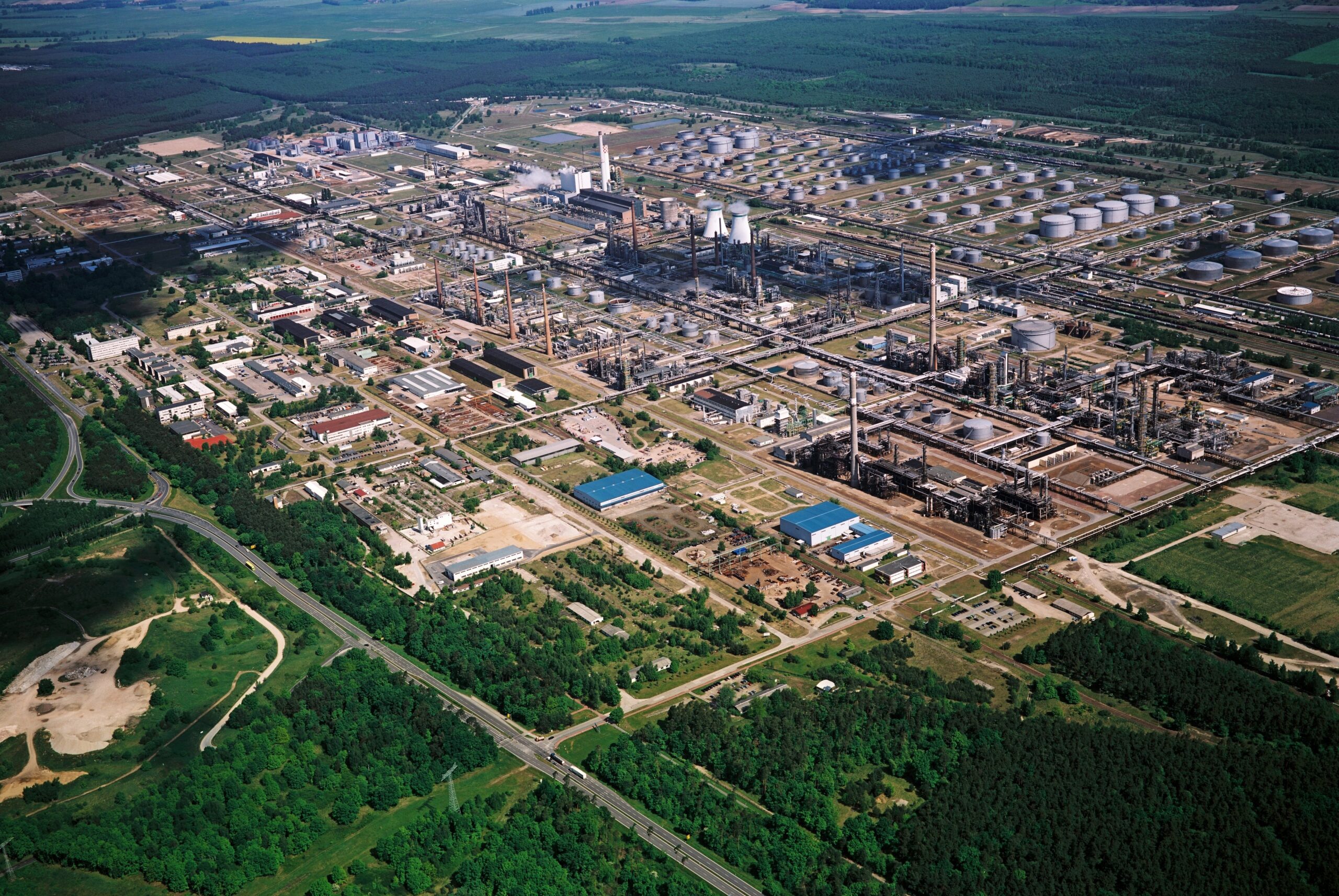Reuters: Poland urges Germany to speed up Rosneft’s exit from Schwedt refinery
According to Reuters, Poland’s Climate Minister Anna Moskwa said that „Germany needs to speed up the sale of Russian energy group Rosneft’s majority stake in the Schwedt refinery for Poland to deliver in full on a crucial supply deal for the refinery”.
Refinery in Schwedt / Picture by PCK Raffinerie GmbH
The authors of the Reuters article explain that „PCK Schwedt, which has traditionally supplied 90% of the fuel used in Germany’s capital Berlin, was operating at 50-60% capacity this spring after Germany stopped oil supplies from Russia due to the Ukraine war.”
„In December, Poland and Germany agreed to cooperate on supplying Schwedt via pipelines from the Polish port of Gdańsk, while Polish refiner PKN Orlen expressed an interest in buying the refinery,” the article continues. Nevertheless, time and again the Polish government has made it clear that it wants Germany to remove Rosneft as Schwedt shareholder. Otherwise, Poland will not sign any long-term oil supply deal.
Reuters reminds that Germany passed a law in April that would allow a quick sale of Rosneft’s stake in the refinery, but addedd that it was unclear when or how that would happen.
„The Russian company sued Berlin in October for taking control of its German unit, and its law firm said in April that the German government’s actions amounted to <expropriation>,” the news agency wrote.
„German Economy minister Robert Habeck has shown that he is determined to get rid of the Russians and I very much believe that his determination is sincere, but this process is taking an awfully long time and it is not satisfactory,” Anna Moskwa told Reuters.
„I think that this determination should be proven by the pace of the process and that’s what we’re waiting for, but in fact we’re not able to more on the Polish side,” she added as reported by Reuters.
„In the meantime, Poland is offering only irregular slots for tankers that transport non-Russian oil for Schwedt into the terminal in Gdańsk and the German refinery can’t run at full capacity,” the news agency stated.
„We’ve got modern infrastructure and it’s being expanded. We’re ready to cooperate but obviously without Russians,” Moskwa told the Reuters journalists.
Reuters / Jacek Perzyński
Andrzej Kensbok, vice president of Gaz-System, will join the Management Board of Gas Infrastructure Europe
On June 15, the General Meeting of Gas Infrastructure Europe (GIE) unanimously accepted Gaz-System’s VP Andrzej Kensbok as member of the board. GIE represents European gas transmission operators.
In connection with the ongoing work on the gas-hydrogen package, as well as the ongoing discussion on the role of natural gas in the energy transition of the European Union economy, a number of decisions were made during the General Meeting of the GIE in Riga, including those concerning the governing bodies of the association.
As part of his mission, Andrzej Kensbok will be responsible for strengthening the role of LNG and natural gas as a key element of the ongoing decarbonisation process in the EU, at the same time supporting the process of an energy revolution based on low – and zero-emission gases.
„Together with Gaz-System’s recently adopted new strategy, we are becoming a leader – both in Poland and in Europe – in the sustainable decarbonization of our economy,” said Andrzej Kensbok.
For more than a decade, Gaz-System has been actively involved in international activities and takes an active part in shaping the regional gas transmission market, also within the framework of individual international industry organizations. The company is an important partner in the ongoing dialogue at the EU forum on the energy transition, further strengthening security of supply in the region, as well as decarbonization of the economy, based on low-and zero-emission gases.
Polish Press Agency / Jacek Perzyński









